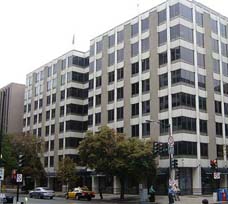2006.09.05: September 5, 2006: Headlines: Directors - Tschetter: COS - India: Congress: Nominations: PCOL Exclusive: Meet Ron Tschetter - Our Next Director
Peace Corps Online:
Peace Corps News:
Directors of the Peace Corps:
Peace Corps Director Ron Tschetter:
Ron Tschetter: Newest Stories:
2006.09.05: September 5, 2006: Headlines: Directors - Tschetter: COS - India: Congress: Nominations: PCOL Exclusive: Meet Ron Tschetter - Our Next Director
Meet Ron Tschetter - Our Next Director
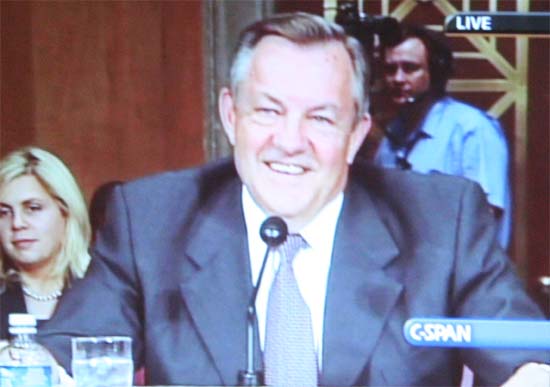
Read our story about Ron Tschetter's confirmation hearing before the Senate Foreign Relations Committee that was carried on C-Span. It was very different from the Vasquez hearings in 2001, very cut and dried with low attendance by the public. Among the highlights, Tschetter intends to make recruitment of baby boomers a priority, there are 20 countries under consideration for future programs, Senator Dodd intends to re-introduce his third goal Peace Corps legislation this session, Tschetter is a great admirer of Senator Coleman's quest for accountability, Dodd thinks management at PC may not put volunteers first, Dodd wants Tschetter to look into problems in medical selection, and Tschetter is not a blogger and knows little about the internet or guidelines for volunteer blogs. Read our recap of the hearings then read Senator Coleman's statement and Tschetter's statement.
Meet Ron Tschetter - Our Next Director
There was a much better view on CSPAN than in person
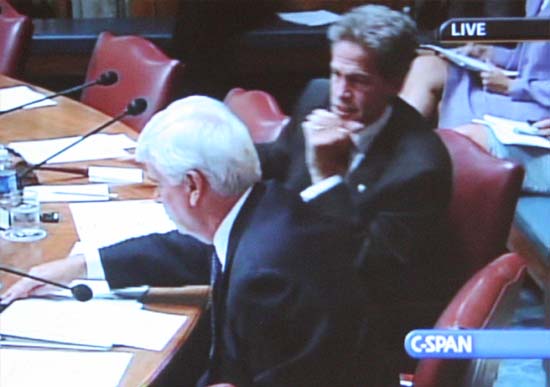
We didn't attend the hearings in person this year as we did for the Gaddi Vasquez hearings in November 2001 but we did watch them on C-Span and in some ways we got a better view of what was happening than when we were there in person.
Although we couldn’t feel the raw emotion of the 2001 hearings, there didn't appear to be much emotion this time around anyway. It was pretty cut and dried so we don’t think we missed much. Watching the hearings let us see close ups of Senators Coleman, Senator Dodd and Ron Tschetter and gave us a bird's eye view of the proceedings that we didn't have when we attended in person.
Not many people came to the hearings this time
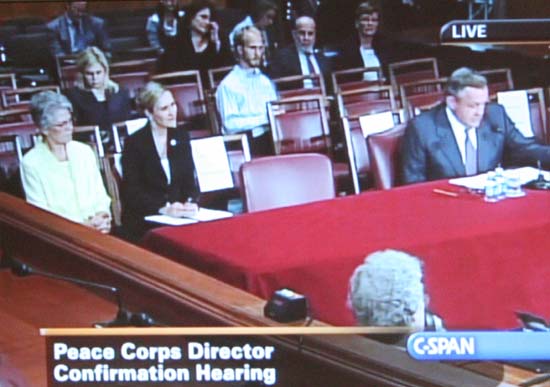
We are familiar with Room 419 where the hearings were held and it looks about one quarter full. When Gaddi Vasquez appeared in 2001 for his confirmation hearing the room was packed and two rows of Peace Corps officials and witnesses sat behind Director Vasquez and Deputy Director Jody Olsen. Ron Tschetter came with his wife, Nancy (seated left - RPCV India), and the Peace Corps Congressional liaison Michelle Brooks.
This is the second time we have watched hearings held by the Senate Foreign Relations Committee to consider the nomination of a Peace Corps Director - the first was in November 2001 for Gaddi Vasquez so let us compare and contrast the hearings. In 2001, the hearings were well attended, the room was packed, four Senators attended (Dodd, Boxer, Chaffee, Sarbanes) and asked questions, there were three witnesses (Jack Vaughn, Chris Cox, Loretta Sanchez) who spoke about Mr. Vasquez's qualifications, and the hearings lasted several hours. This time there weren't many people in attendance. Only Senator Coleman and Senator Dodd sat on the committee. There were no witnesses for or against Mr. Tschetter.
Senator Coleman chaired the hearings and welcomed the nominee

Senator Coleman is Chairman of the committee and he opened the hearings by talking about the Peace Corps and welcoming Ron Tschetter. He said that it was his understanding that over 20 countries had asked for the Peace Corps to enter.
Senator Coleman said that he was pleased that the President had chosen a fellow Minnesotan to be the next Director. “I am pleased the Committee had the opportunity to consider the nomination of such an outstanding individual,” said Coleman. “Mr. Tschetter has a perspective and vision for the Peace Corps that was uniquely formulated by his own experience as a former Peace Corps Volunteer in India. Most importantly, he placed a great emphasis on addressing volunteer safety and security concerns. His commitment to the organization makes him an excellent choice for this important post and I look forward to casting my vote in favor of his nomination.”
Senator Dodd talked about his own service as a volunteer
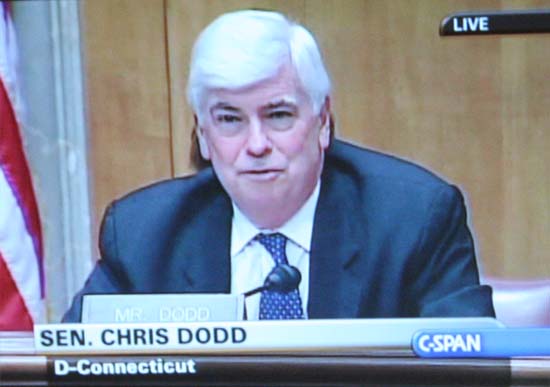
Senator Dodd as the ranking Democratic member of the committee was the next to speak and he talked about his own service as a Peace Corps Volunteer in the 1960's in the Dominican Republic and how it seemed that both Dodd and Tschetter had served during the same years from 1966 to 1968.
Dodd said that he was delighted that Tschetter was a Returned Volunteer and said that the directorship shouldn't be the exclusive domain of Returned Volunteers - but that there had been RPCV Directors in the past (Bellamy and Schneider) and that it was good to see a fellow volunteer take the position.
Dodd talked about two volunteers who had died in Mali in a boating accident this past Sunday, sent out his condolences to the families, and talked about the issue of Safety and Security in the Peace Corps.
Dodd added that the Peace Corps is in some ways more urgent today than at almost any other time.
Dodd mentioned that he had traveled to Israel, Lebanon, Jordan and Egypt in April and met with 20 volunteers in Ammam who are completing their service in Jordan and spoke with them for several hours and said that although there is anti-Americanism in the region, he said that volunteers there told him how much respect there is for for the United States. He said that 13 of the 20 volunteers are going on to Arabic Studies in graduate school.
Dodd said that last year he had gone to the Dominican Republic where he had served exactly 40 years ago. He went back to his village unannounced. He didn't want to make a big deal about it. He said that within 25 minutes people who he hadn't seen for a quarter century came out of the woodwork and he was tremendously touched by how the two years he spent there 40 years ago seemed to have touched so many people.
Dodd talked about the first group of volunteers who went to Ethiopia with the group that included Paul Tsongas, the late Senator from Massachusetts. He said he had recently been talking to the first Country Director, Harris Wofford about that first group and how they were invited to the White House and how JFK talked about how 40 or 50 years in the future he hoped that there might be a million returned Volunteers and what a big difference it would make in American society to have that many people bring that perspective back to the United States after having served overseas. That hadn't happened; there were about 180,000 returned volunteers but Dodd thought that the Peace Corps needed to figure out a way to really engage these 180,000 RPCVs and get them involved in programs to further the third goal.
Tschetter made his opening statement
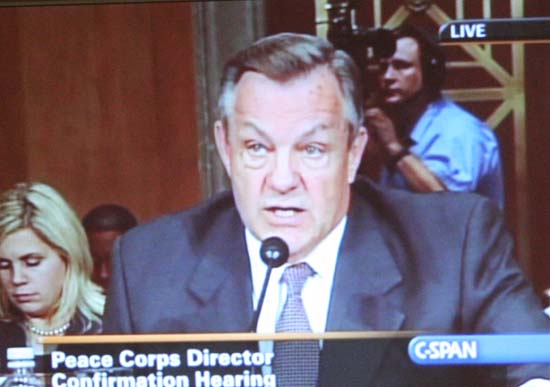
Tschetter made his opening statement and talked about how honored he was to be selected as Peace Corps Director. He went on to say that he had read Senator Coleman's speech at Peace Corps Headquarters two years ago calling for greater accountability and wanted to thank Senator Coleman for those inspiring words.
Tschetter also wanted to recognize outgoing Peace Corps Director Gaddi Vasquez and recognize all the progress that has been made in the past four and a half years especially in Volunteer Safety and Security.
Tschetter talked about growing up in South Dakota with his 6 siblings and how his parents had instilled an ethic of service in the family, about how he and his wife had joined the Peace Corps after one year of marriage, and how he and his wife had returned five times to their Country of Service in India.
He talked about the management and leadership skills he had acquired in the securities business and he pledged to apply those skills in running the Peace Corps.
Tschetter stated that the Safety and Security of Peace Corps Volunteers is the agency's Number One Priority and he wants to see Safety and Security fully integrated in all aspects of the agency's programs in recruitment, training, and during service.
Senator Coleman mentioned that Tschetter's wife Nancy was also a volunteer and joked that the agency was getting two for the price of one and Tschetter responded that yes it will be a twofer.
Senator Coleman talked about Safety and Security
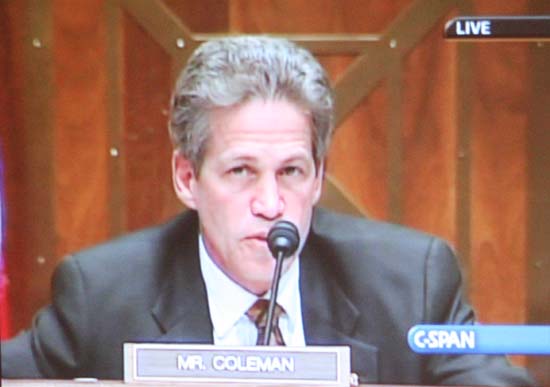
Senator Coleman talked about Safety and Security and asked Tschetter to elaborate on the most important aspects of Safety and Security - is it the technology, is it management, is it integrating the volunteer into the community? Tschetter replied that since 2002 there has been a separate department of Safety and Security at the Peace Corps, that there are 9 regional directors of Safety and Security, and that there is a Safety and Security Information Desk at Peace Corps Headquarters.
Tschetter said that Safety and Security is not a separate topic but is a continuous process of melding the volunteer into the community. This encompasses giving the volunteer a definable job that has responsibilities and accountability, knowing the language, and being in touch with headquarters. Tschetter said there is a method for keeping track of volunteers and the ability to know where volunteers are. Tschetter said that Safety and Security is a moving target, that you can never say it is over with, that there are no guarantees, and that there is always risk in many unfortunate ways as the accident last weekend in Mali shows.
Coleman asked Tschetter how many closures there had been in the last 2 years. After conferring with an aide from the Peace Corps he answered 5 or 6 countries have closed in the last two years. Coleman followed up how do you know when you have to close the program in a country? How do you stay as close to this as we want you to be because at the end, you as Director are the one who is accountable.
Tschetter answered that every morning there is a staff meeting at Headquarters and as they go around the room the first thing he wants to know is are there any situations of instability in any countries where the Peace Corps has volunteers that we need to be keeping a close watch on.
Senator Coleman said that he had recently had the opportunity to meet with some rural mayors from Chile and he wondered if the Peace Corps was planning to return to Chile - that that would be a good thing. He added that we all remember when President Bush proposed doubling the Peace Corps and that didn't happen due to budgetary constraints but did Tschetter have any thoughts if there is an optimal size for the Peace Corps?
Tschetter replied that he remembered the State of the Union address and how excited he was by the prospect of doubling the Peace Corps but that it isn't easy but that the agency is at a 30 year high and now there are 20 countries interested in the Peace Corps. He said we can't do all 20 countries but that a program is starting in Cambodia after a very thorough assessment and that we will do a thorough assessment of other countries for possible future programs.
Senator Dodd asked about Peace Corps management and the Third Goal
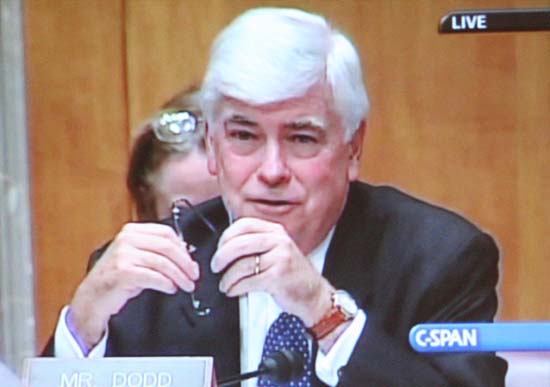
Senator Dodd said that in the last couple of months he has received some emails from some former and current volunteers and that some of them say that management at Peace Corps isn't putting volunteers first nor is it providing them an opportunity to express their views on a wide range of subjects including Safety and Security. He isn't saying that the volunteers are right but that he wanted Tschetter to listen to the volunteers.
Dodd added that on his trip to the Middle East he had had lunch with the foreign Minister for Egypt and talked to him about bringing volunteers to Egypt and that there are only volunteers in two Arab countries - Jordan and Morocco.
Dodd said that Tschetter had been Chairman of the NPCA so he must have some ideas about the third goal of the Peace Corps. Dodd said that RPCVs are excited about the idea of how they can be of service to their country so what is your vision on how to meet the third goal?
Tschetter replied that of course there is the World Wise Schools program and the work that the NPCA does but that the third goal is not a simple topic to resolve because when volunteers return they generally get very involved with other activities like going to graduate school.
Tschetter said that he thinks we need to focus on recruiting baby boomers
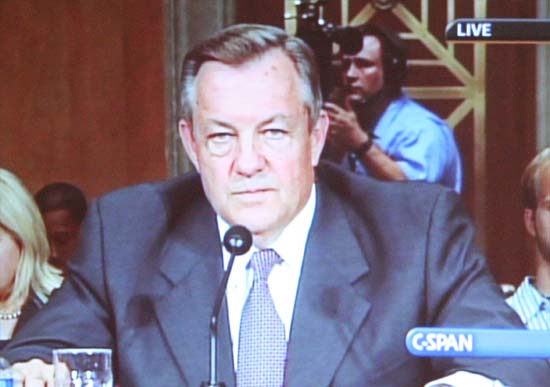
Tschetter said that he thinks we need to focus on recruiting baby boomers, that this is a segment of the population that should be recruited and that when they return they can get involved in Speaker's Bureaus and speak to churches and service clubs about their service in the Peace Corps.
Tschetter said that just a few months ago he made a presentation to a local organization and that he isn't a great speaker but after the presentation many people approached him and told him it was one of the finest presentations they had heard.
Dodd said that two years ago he had authored legislation which would set aside $10 Million in seed money for third goal activities by RPCVs. He said that the legislative proposal passed the Senate by an overwhelming majority but that it had died in the House of Representatives. Dodd said that he planned to re-introduce some Peace Corps legislation in this session of Congress that includes separate funds for third goal activities.
Senator Dodd asked about Medical Screening for older applicants

Dodd said that he had recently heard about problems in the medical screening process and that older volunteers were having difficulty in medical screening and that it can be difficult and confusing for them.
Dodd asked that the process be made clearer and more transparent so that this would not be an obstacle and there could be more opportunities for older Americans to serve in the Peace Corps and did Tschetter have any idea how we might do that.
Tschetter replied that he didn't have any answers right now but that he would definitely be looking into that. He said we need to define the market of where to find older Americans who can serve and want to serve as Peace Corps Volunteers.
Dodd also mentioned that applicants have to bear the cost of medical screening and in some cases this can be costly and that he has been told that this can be an obstacle to service. He asked that Tschetter look into that also.
Senator Dodd asked about blogs and the internet
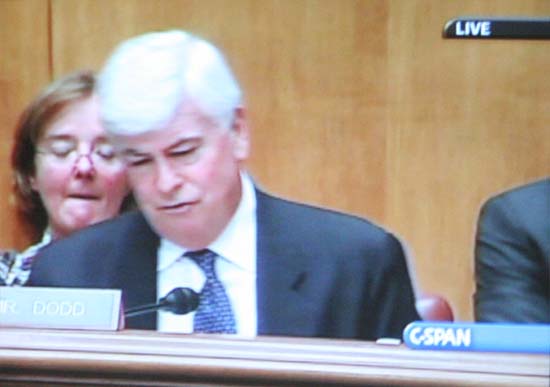
Dodd said that back in his day volunteers were more isolated and that there was no internet and no blogs but that now many volunteers want to have blogs and write about their service as volunteers.
Obviously we need to be sensitive about what volunteers write in blogs. Did Tschetter have any ideas about guidelines that volunteers should follow in their blogs or have any ideas about ensuring that the Peace Corps' publication policy does not infringe the volunteer's right to petition the government?
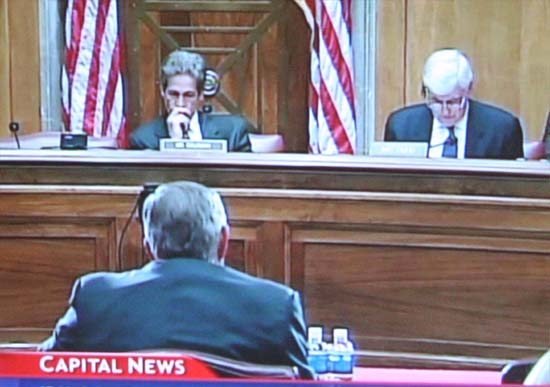
Tschetter replied that he is not a blogger and has had very little awareness that this was going on but that he will look into it.
Dodd continued that there are a lot of good ideas that come from volunteers and it might be good for Tschetter to set aside an hour or two each month to use modern technology to have conversations with volunteers around the globe. With technology today it might be exciting for volunteers to be able talk to the Director as a way of giving voice and expression to their concerns.
Senator Coleman asked about continuity of health insurance for federal employees
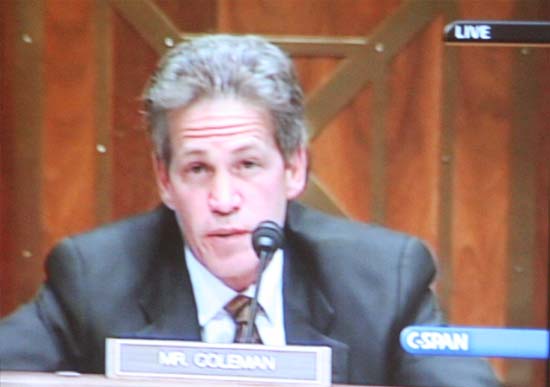
Senator Coleman talked about medical insurance for federal employees and added that he had heard that there were some issues with regards to federal employees who become Peace Corps Volunteers keeping continuity in their medical insurance.
Senator Coleman added that while they serve as volunteers there is a continuity rule that should be looked into and that Tschetter should take the opportunity to talk to some government officials at the state and local level about these issues.
Senator Coleman concluded by saying that he was going to try to get the nomination on the calendar for the Foreign Relation's business meeting for September 7.
The Hearings concluded
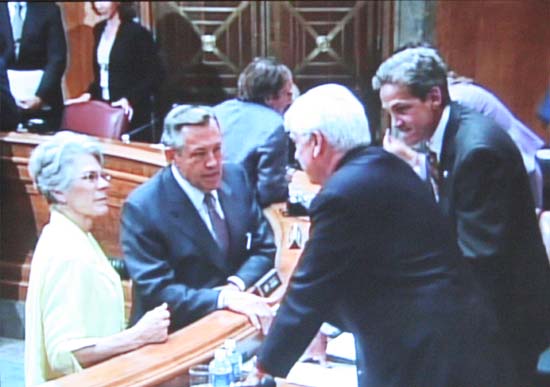
The hearings were over in 45 minutes.
Tschetter and his wife went up to the front podium to greet Senator Coleman and Senator Dodd.
PCOL Comment: Our assessment of the Hearings

We think Tschetter has the makings of a good Director.
We have not met Mr. Tschetter but he came across in the hearings as a solid man and a good manager. He brings a lot to the table including being an RPCV, former Chairman of the NPCA, and seasoned in business with boardroom experience. He demonstrates knowledge of and sensitivity for the the PCV putting Safety and Security as his primary goal. His platform of recruiting baby boomers demonstrates his vision of looking into new markets for volunteers. He has agreed to look at key issues such as the process and cost of medical screening, PCV communication (guidelines for blogs and being available to connect with volunteers as the Director), and looking at new ways for PCVs and RPCVs to contribute to the third goal. He certainly will be confirmed. We look forward to his tenure and offer our congratulations and best wishes.
When this story was posted in September 2006, this was on the front page of PCOL:





Peace Corps Online The Independent News Forum serving Returned Peace Corps Volunteers
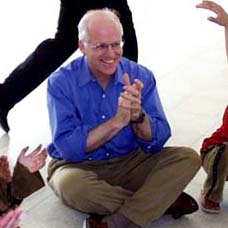 | Chris Shays Shifts to Favor an Iraq Timetable
In a policy shift, RPCV Congressman Chris Shays, long a staunch advocate of the Bush administration's position in Iraq, is now proposing a timetable for a withdrawal of American troops. How Mr. Shays came to this change of heart is, he says, a matter of a newfound substantive belief that Iraqis need to be prodded into taking greater control of their own destiny under the country’s newly formed government. As Chairman of the House Government Reform subcommittee on national security, he plans to draft a timetable for a phased withdrawal and then push for its adoption. A conscientious objector during the Vietnam War who said that if drafted he would not serve, Chris Shays has made 14 trips to Iraq and was the first Congressman to enter the country after the war - against the wishes of the Department of Defense. |
 | Peace Corps' Screening and Medical Clearance
The purpose of Peace Corps' screening and medical clearance process is to ensure safe accommodation for applicants and minimize undue risk exposure for volunteers to allow PCVS to complete their service without compromising their entry health status. To further these goals, PCOL has obtained a copy of the Peace Corps Screening Guidelines Manual through the Freedom of Information Act (FOIA) and has posted it in the "Peace Corps Library." Applicants and Medical Professionals (especially those who have already served as volunteers) are urged to review the guidelines and leave their comments and suggestions. Then read the story of one RPCV's journey through medical screening and his suggestions for changes to the process. |
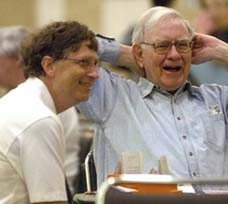 | Gates charity races to spend billions
Warren E. Buffett’s gift of $31 billion to the Bill and Melinda Gates Foundation means that for tax reasons, starting in 2009, the foundation must distribute $3 billion annually, or a little more than twice what it distributed last year.
PCOL Comment: The Foundation says that "preventing the spread of HIV is the most durable long-term solution to the AIDS epidemic, and a top priority for the foundation." Peace Corps Volunteers and Returned Volunteers have been doing just that in AIDS Education for the past 15 years. Why not consider a $100M annual contribution to the Peace Corps to put 2,500 additional volunteers in the field to expand AIDS education worldwide? |
 | The Peace Corps is "fashionable" again
The LA Times says that "the Peace Corps is booming again and "It's hard to know exactly what's behind the resurgence." PCOL Comment: Since the founding of the Peace Corps 45 years ago, Americans have answered Kennedy's call: "Ask not what your country can do for you--ask what you can do for your country. My fellow citizens of the world: ask not what America will do for you, but what together we can do for the freedom of man." Over 182,000 have served. Another 200,000 have applied and been unable to serve because of lack of Congressional funding. The Peace Corps has never gone out of fashion. It's Congress that hasn't been keeping pace. |
 | Changing the Face of Hunger
In his new book, Former Congressman Tony Hall (RPCV Thailand) says humanitarian aid is the most potent weapon the United States can deploy against terrorism. An evangelical Christian, he is a big believer in faith-based organizations in the fight against hunger. Members of Congress have recently recommended that Hall be appointed special envoy to Sudan to focus on ending the genocide in Darfur. |
 | PC will not return to East Timor in 2006
Volunteers serving in East Timor have safely left the country as a result of the recent civil unrest and government instability. Latest: The Peace Corps has informed us that at this time, the Peace Corps has no plans to re-enter the country in 2006. The Peace Corps recently sent a letter offering eligible volunteers the opportunity to reinstate their service in another country. |
 | Chris Dodd considers run for the White House
Senator Chris Dodd plans to spend the next six to eight months raising money and reaching out to Democrats around the country to gauge his viability as a candidate. Just how far Dodd can go depends largely on his ability to reach Democrats looking for an alternative to Hillary Clinton. PCOL Comment: Dodd served as a Volunteer in the Dominican Republic and has been one of the strongest supporters of the Peace Corps in Congress. |
 | Peace Corps stonewalls on FOIA request
The Ashland Daily Tidings reports that Peace Corps has blocked their request for information on the Volkart case. "After the Tidings requested information pertaining to why Volkart was denied the position — on March 2 — the newspaper received a letter from the Peace Corps FOIA officer stating the requested information was protected under an exemption of the act." The Dayton Daily News had similar problems with FOIA requests for their award winning series on Volunteer Safety and Security. |
 | PCOL readership increases 100%
Monthly readership on "Peace Corps Online" has increased in the past twelve months to 350,000 visitors - over eleven thousand every day - a 100% increase since this time last year. Thanks again, RPCVs and Friends of the Peace Corps, for making PCOL your source of information for the Peace Corps community. And thanks for supporting the Peace Corps Library and History of the Peace Corps. Stay tuned, the best is yet to come. |
 | History of the Peace Corps
PCOL is proud to announce that Phase One of the "History of the Peace Corps" is now available online. This installment includes over 5,000 pages of primary source documents from the archives of the Peace Corps including every issue of "Peace Corps News," "Peace Corps Times," "Peace Corps Volunteer," "Action Update," and every annual report of the Peace Corps to Congress since 1961. "Ask Not" is an ongoing project. Read how you can help. |
 | RPCV admits to abuse while in Peace Corps
Timothy Ronald Obert has pleaded guilty to sexually abusing a minor in Costa Rica while serving there as a Peace Corps volunteer. "The Peace Corps has a zero tolerance policy for misconduct that violates the law or standards of conduct established by the Peace Corps," said Peace Corps Director Gaddi H. Vasquez. Could inadequate screening have been partly to blame? Mr. Obert's resume, which he had submitted to the Peace Corps in support of his application to become a Peace Corps Volunteer, showed that he had repeatedly sought and obtained positions working with underprivileged children. Read what RPCVs have to say about this case. |
 | Why blurring the lines puts PCVs in danger
When the National Call to Service legislation was amended to include Peace Corps in December of 2002, this country had not yet invaded Iraq and was not in prolonged military engagement in the Middle East, as it is now. Read the story of how one volunteer spent three years in captivity from 1976 to 1980 as the hostage of a insurrection group in Colombia in Joanne Marie Roll's op-ed on why this legislation may put soldier/PCVs in the same kind of danger. Latest: Read the ongoing dialog on the subject. |
Read the stories and leave your comments.

Some postings on Peace Corps Online are provided to the individual members of this group without permission of the copyright owner for the non-profit purposes of criticism, comment, education, scholarship, and research under the "Fair Use" provisions of U.S. Government copyright laws and they may not be distributed further without permission of the copyright owner. Peace Corps Online does not vouch for the accuracy of the content of the postings, which is the sole responsibility of the copyright holder.
Story Source: PCOL Exclusive
This story has been posted in the following forums: : Headlines; Directors - Tschetter; COS - India; Congress; Nominations
PCOL34342
38























